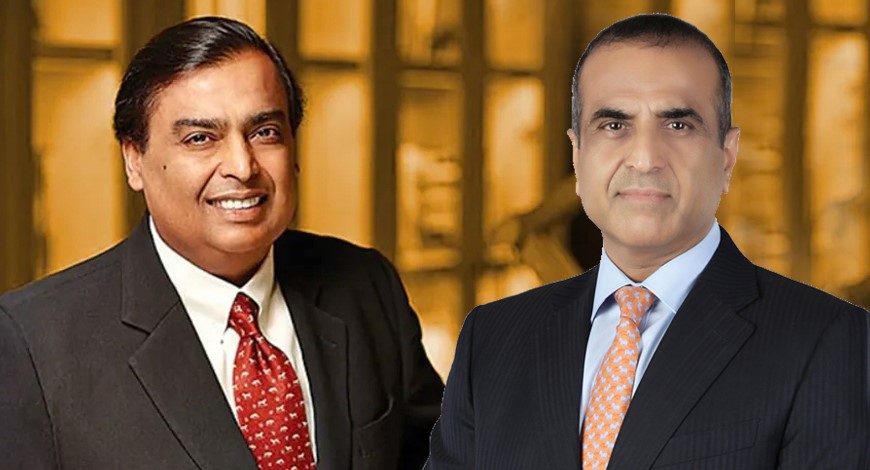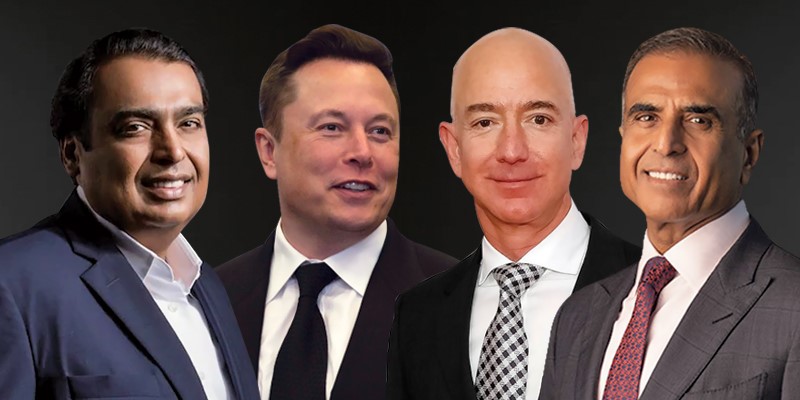BCS Stories
Clash of the Titans!

Mukesh Ambani’s tryst with telecom and Jio’s runaway success of its telecom services and its 100 percent homegrown 5G technologies claim is no secret. When the Ambani brothers split their father’s business in two parts in 2005, his sibling, Anil Ambani walked away with the telecom part, and renamed it Reliance Communications. It was only in December 2015, when Jio was soft-launched that Mukesh Ambani was able to transcend his father’s vision and his own telecom dream. Disruption is second nature to him. The credit of India climbing from position number 155 to numero one in mobile consumption, free voice and data for Rs 4 per GB, the cheapest in the world can certainly be attributed to him.
Bharti Enterprise chairman, Sunil Mittals’ passion for telecom is well acknowledged too. Who can forget the early days, when private telecom services were being introduced in India, by the time it was Mittal’s turn to make a presentation on the dais, be it at India Mobile Congress or Convergence India or any other forum, the seminar halls were jam-packed, with the who’s who of Indian telecom industry gathered there, listening in hushed silence, while he spoke passionately, of course extempore, in contrast to the other speakers who rattled off prepared speeches, on various burning issues that needed to be resolved to put India on the telecom map.
His telco has many firsts to its credit. India’s first company to launch 4G services in Kolkatta, way back in 2012; pioneers in submarine cables, the heartbeat for any data center-India’s first submarine cable going from Chennai to Singapore was laid by Airtel. SingTel has recently committed USD 405 million into the USD 3.8 billion rights issue, as has Google to invest upto USD 1 billion, thereby not only improving the telco’s debt leverage, but also enabling it to accelerate its growth path into 5G and rolling out more fibre. A pioneer in telecom services, the telco has moved from strength to strength, and is now present in 16 countries across South Asia and Africa, with over 480 million customers. The company ranks amongst the top three mobile operators globally.

Having rescued OneWeb from bankruptcy in July 2020, and in a joint venture with Hughes Communications India Pvt Ltd., Airtel is poised to provide satellite broadband services across India by May 2022. Jio having failed to get the government to auction spectrum for satellite broadband services (the decision is still awaited) has applied to the DoT for a global mobile personal communications via satellite services (GMPCS) license through its satellite arm, Jio Satellite Communications (JSC). Jio has partnered with Luxembourg-based telecom company SES, in which it acquired 51 percent of the equity share to become an anchor customer of the joint venture and bring satellite-based broadband service in India.
While India accounts for just 2.6 percent of the global space economy in 2020, EY projects it is likely to reach USD 12.8 billion by 2025. Clearly India’s satellite communications market is heating up, with Elon Musk’s Starlink, Amazon’s Project Kuiper, and Tata-Telesat also in the fray.
The two telcos, Jio and Airtel are also partnering with under-sea cable consortiums to scale up high-speed network capacities to meet growing low latency demand globally. The undersea cable systems are vital infrastructure to support 5G and the digital economy.
The year ahead looks set to be an eventful one ahead!






You must be logged in to post a comment Login